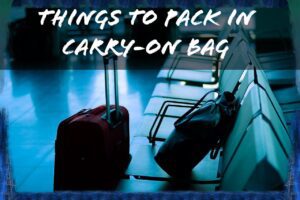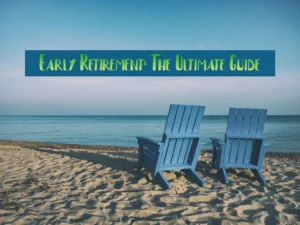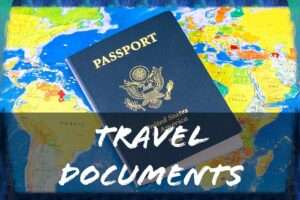Travel insurance is something that most people don’t think they need until something happens, and then they are reminded of how valuable it can be. There are many mistakes that people make when buying travel insurance, including the following eight common mistakes.
When it comes to purchasing travel insurance, many people do not do their research and end up paying more than they need to, or worse, not getting any insurance at all! The truth is that there are many travel insurance companies out there and it can be confusing figuring out which one to choose.
But if you want the best deal when buying travel insurance, this article will give you some tips on what to look out for, where to look and what you should avoid to buy quality travel insurance at the best price.

1) Choosing travel insurance based on price
One mistake people make when buying travel insurance is basing their decision on the cheapest option. You may end up buying a policy that doesn’t cover certain things you need and then finding out too late.
If you’re going abroad, it’s best to make sure your insurance covers repatriation expenses just in case something goes wrong and you need to be flown back home. All types of travel are covered by most plans and prices can vary greatly depending on your destination, duration of the trip, medical history, age, etc.
It’s important to know what your options are before buying travel insurance. In other words, the cheapest policy might not provide you with the coverage you need if something goes wrong. Compare several different policies and see which one provides the most comprehensive protection for your needs and budget.
2) Not knowing how to calculate the total coverage amount
This is a common mistake that people make when purchasing travel insurance. They’ll choose the amount of coverage they need but don’t look at the total cost, thinking it will be one fixed amount.
The total cost of travel insurance varies depending on the type of policy you purchase, so there’s no way to give a one-size-fits-all answer to this question.
However, in general, traveler’s medical plans have the lowest upfront costs with increased monthly costs due to high deductibles.
For example, if you were going on vacation for two weeks and needed $10,000 worth of coverage for emergency medical expenses like surgery or hospitalization and your deductible was $2,500, the cost would be around $150 for those two weeks.
If your deductible was $5,000 instead and your total coverage was $10,000 for two weeks: the cost would only be about $300 – which is still considerably less than most traditional health insurance plans.
3) Misunderstanding the claims process
The most common mistake people make when buying travel insurance is misunderstanding the claims process. If you’re faced with a medical emergency during your travels, you may assume that it will be covered.
This is not always the case. If there is any ambiguity, don’t hesitate to contact your insurer and inquire about whether or not you’re eligible for benefits, as well as how much coverage you’ll receive (both typically in proportion to the cost of your policy).
Sometimes it’s necessary to file an official claim, but others can be handled over the phone or through email. In some cases, insurers require clients to submit receipts before reimbursement takes place; if this is the case, be sure to keep copies of all expenses incurred on your trip.
4) Overlooking the time limit for submitting claims
Travel insurance is something most people don’t give much thought to until they have to file a claim. Often, by the time you’re ready to make a claim, it’s too late and your coverage has expired.
To avoid this issue and get the coverage you need for your vacation, plan ahead of time and know how long you have before your policy expires. If you are traveling outside of North America, be sure to buy travel insurance with an unlimited date or duration as these policies cover trip cancellation or interruption due to any reason, including terrorism.
You should also find out if your provider offers 24-hour emergency assistance in the country where you will be traveling. Lastly, check if there are any limits on claims for lost luggage, travel delays, etc.
5) Skipping calling customer service
If you’re buying travel insurance and are worried about whether or not it will be worth it, don’t stop by reading the policy – call customer service to get the latest information on policies. You never know what might change and policies do expire, so you want to make sure you have all of the information in front of you.
And while it’s always a good idea to read your policy carefully before signing up for coverage, most people miss a few important things when doing this.
First off, you’ll need to check if there is an exclusion period (i.e., a time frame where your coverage doesn’t apply).
Second, if you’re buying travel insurance for more than one person, remember that every traveler needs their policy.
Thirdly, many travelers think they’ll be covered by their health insurance at home but unless they buy an around-the-world plan (which often costs more), they won’t be covered outside of their country of residence.
6) Selecting a plan that does not cover pre-existing conditions
There are some situations where people buy travel insurance even if they’re not intending to go on a trip. For example, you might buy travel insurance for yourself and your children if they will be home alone while you’re away.
Some other scenarios may necessitate buying travel insurance, such as booking a cruise while pregnant or traveling during the winter flu season. If you do have a pre-existing condition, make sure to purchase an appropriate plan.
The best way to find out what is covered in a particular plan is to look at the fine print in the small print of their website before signing up. You can also ask questions like What doesn’t this policy cover? and Does this policy cover pre-existing conditions?
7) Picking the wrong insurance policy for your needs
One of the first mistakes people make when buying travel insurance is not taking enough time to read the details of their policy. Always make sure you review what your policy covers and whether it will be sufficient for your needs.
A mistake that people often make is picking an insurance company based on price without investigating what the quality of service will be. Finding a reputable, experienced company that offers competitive rates is key to securing a quality policy.
You should also look into any additional costs such as pre-existing conditions exclusions or supplemental coverage. For example, some policies cover medical expenses up to USD 250,000 while others cover USD 500,000 or more. You may need extra coverage if you are traveling with family members or going abroad where medical care is more expensive than in North America.
8) Waiting until you are in an accident before getting travel insurance
A major mistake people make when getting travel insurance is waiting until they are in an accident before buying it. A much better plan would be to have a policy in place from the time you purchase your ticket, this way if anything does happen you will be able to recoup the funds.
Additionally, if your health isn’t what it used to be you may want to get a comprehensive policy that covers any unforeseen medical event.
Also, make sure you read all of the fine print as some policies don’t cover pre-existing conditions and some can only reimburse up to $500 per day for hospital stays and other expenses while others offer $10 million in coverage. The bottom line is: don’t wait too long!
Wrapping Up
Hopefully, you learned something from reading this blog post. Not every piece of advice is a universal truth and there’s more than one way to do things, but hopefully the 8 mistakes we mention here will help you avoid common pitfalls.
The last thing I want to leave you with is this: please read the policy wording before buying your plan so that you can make sure it provides the coverage you need. Remember too that insurance doesn’t cover everything.
For example, if you’re planning on renting a car or taking an overseas trip, be sure to get separate insurance for those items as well.
If you have any questions about what your specific policy covers, don’t hesitate to call our customer service team! We’ll be happy to answer any questions you might have about health insurance.























